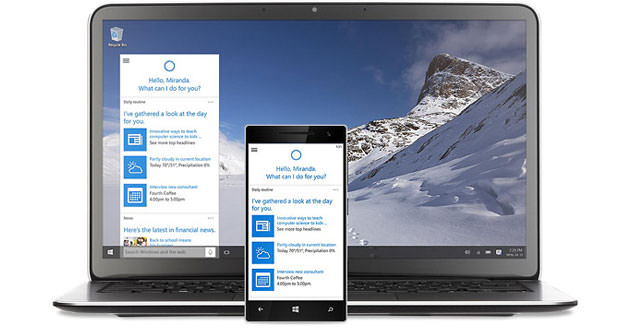In spite of Microsoft’s efforts to promote the free upgrade to Windows 10, the technical assistance services are advising against the new operating system, suggesting to those who have installed the downgrade.
It seems that in the United States, some support services are advising not to upgrade to Windows 10, and they are trying to convince users that have already installed to downgrade. All while Microsoft is trying to make the company Pharaonic to bring the new operating system on a billion machines with free updates and relentless marketing, a company which seems hampered by the same partners.
The news was reported by Laptop that has made a series of calls to media assistance of Dell and HP, asking employees to some technical questions related to the new platform. The responses were not certainly in line with the strategies of Microsoft. In one case, Dell experts have advised to return to Windows 8.1, citing the ” many problems ” present on the latest operating system release for Redmond.
He responded in a rather similar even HP support, where the clerk recommended the purchase of a flash drive for $ 40 to restore a previous version of Windows. In a statement issued to Dell Laptop, it reads: ” Since Windows 10 continues to evolve, in some cases we advise our customers to return to the operating system that used previously in order to solve a specific problem they have encountered. ”
The company also added: ” We remain committed to supporting Windows 10 and are ready to help our customers make the transition as easy as possible. ” HP’s response was rather more pragmatic: ” In the end, what is being asked is that the PC is working properly, ” said Mike Nash of American society. ” Given the chance, make customers return to a platform already known may have been the fastest thing to do. ”
And this is precisely why some welfare services advise the downgrade, especially if you have a computer of last generation. Moreover, this is not an entirely new policy, with manufacturers offering support to a limited number of software on specific machines for a reason: it is not easy to ensure full compatibility with a version of Windows that did not exist when the computer. It was marketed.
A policy probably old as computer science, but it is curious to note that is totally at odds with Microsoft’s strategy for Windows 10 and its strategic maneuver of free updates.

